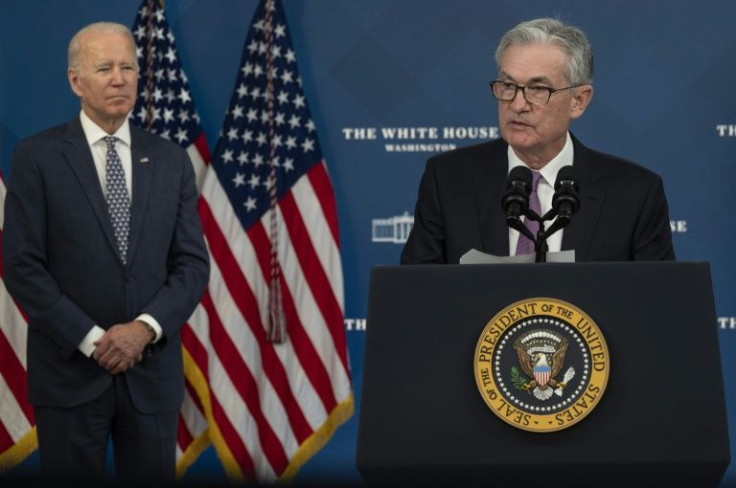Biden, Fed Chair Powell To Meet As Inflation Continues To Weigh On Consumers

U.S. President Joe Biden will meet Federal Reserve Chair Jerome Powell on Tuesday as historic inflation continues to drain Americans' pocketbooks.
The meeting, the first since Powell's confirmation for a second term by the Senate earlier this month, comes as Biden seeks to lower costs for gasoline, food and consumer goods that have sent inflation to 40-year highs.
Biden will reiterate the Fed's independence, note that the central bank has the tools to address inflation and discuss the U.S. and global economies, White House National Economic Council Director Brian Deese said in television interviews on Tuesday.
"We are in this transition from what has been a historic economic recovery -- historic in the jobs created, historic in the wealth created for American families -- and now we need to transition to more stable and resilient growth," he told MSNBC.
U.S. stock index futures fell on Tuesday ahead of the meeting, scheduled for 1:15 p.m. (1715 GMT).
The U.S. economy had its strongest growth in nearly four decades in 2021, after the government poured trillions in COVID-19 relief into the economy, fueling consumer spending that has contributed to higher prices.
A Labor Department report earlier this month showed unemployment rolls shrinking to the lowest level in 52 years, helping to drive wage growth.
The Fed has already raised interest rates by 3/4 of a percentage point this year and plans to raise rates by half a percentage point more at each of the next two meetings, with potentially more increases to come after that.
The Fed hopes inflation will at least in part moderate on its own, as companies sort out supply chain issues complicated by the pandemic, for example, and consumers shift spending toward services.
But Powell has also made clear that the Fed is no longer counting on that, and will ratchet interest rates as high as needed. He sees high inflation as the chief economic risk facing the country, and controlling it as the Fed's top priority during his second term, even if the process proves painful to households and firms, and pushes the unemployment rate a bit higher.
For Biden and the Democratic party that could mean a difficult midterm election season, where they are trying to maintain control of Washington.
In a Wall Street Journal opinion piece published on Monday, Biden said the Federal Reserve's main role was to control inflation.
Biden said his "predecessor demeaned the Fed, and past presidents have sought to influence its decisions inappropriately during periods of elevated inflation. I won't do this."
The Powell-led Fed has been criticized by some economists for being slow to address high inflation by ending emergency support for the economy and beginning interest rate hikes.
U.S. consumer price growth slowed sharply in April as gasoline prices eased off record highs, suggesting that inflation has probably peaked, though it is likely to stay hot for a while and keep the Federal Reserve's foot on the brakes to cool demand.
Powell last week said that despite some encouraging signs that price pressures may be peaking, the current environment is "not a time for tremendously nuanced readings of inflation," and U.S. central bank officials will keep tightening policy until inflation comes down in "a convincing way."
© Copyright Thomson Reuters 2024. All rights reserved.





















